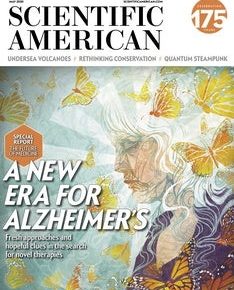Now is the time for hygiene of hand and mind.
“You don’t need to add much to the CDC’s handwashing guidelines to make it a meditation practice,” observes author Taylor Plimpton. “Just carefully following the steps requires focus, presence and a complete immersion in what you are doing.”
Meditation can help us reach a deep understanding of how our world is becoming increasingly interconnected. With these connections come vulnerability and responsibility. We forget this reality or, worse, ignore it deliberately until it comes our turn to be personally affected. Othering, isolationism (notably different from self-isolation) and nationalism only serve to make us especially vulnerable when a pandemic hits.
The novel coronavirus outbreak, which emerged in Wuhan, China, has spread worldwide and triggered fear in nearly every corner of the globe. In the midst of these unprecedented, uncertain and challenging times, we paused to contemplate: What does this deadly virus reveal about human nature? What can we learn about human interconnection with the environment?
HUMAN NATURE
“I am neither a victim of this virus nor personally know anyone who has been infected by it,” reflects one of us (Rinchen Wangyal). “But I have a brother who was in China with his family, and like many other people in China and around the world, I knew they were in panic about the novel coronavirus epidemic crisis. Thus, I was wondering, as a Buddhist, or more importantly as a human being, how I should face this crisis. Thanks to the Emory-Tibet Science Initiative’s summer science programs for monks at Drepung Losel Ling Monastery in Karnataka, India, I am aware viruses can spread in an uncontrolled way. Some viruses can transmit from other animal species to human species causing illness and even fatalities.”
Through a dual Tibetan Buddhist and Western scientific lens, we see that the emotional, psychological and physical states of human beings are constantly changing. Both Buddhism and science tell us that avoiding such changes is impossible because nothing has absolute, permanent existence.
This tiny, spiked virus reminds us of the inclusion of human nature in this ever-changing process. We are no exception. We, too, are impermanent. Our fate is unpredictable. We all experience different realities in an unstable manner. Beauty lies in the unity of impermanence; impermanence being one characteristic common to everything that is living, has lived or will live.
INTERDEPENDENCE
It is increasingly apparent that we are not aware of how to interact with our natural world. We exploit natural resources for short-term gratification of humans with little regard for long-term consequences. Swedish Nobel Prize–winning chemist Svante Arrhenius estimated the rise in global temperatures as an effect of widespread coal burning in 1896. Well over a century later, we continue to grapple with the realities of our changing climate.
The One Health approach was recommended for pandemic preparedness in 2007, following an international meeting that called for interdisciplinary, coordinated action between the human, animal and environmental health sectors. The term “One Health” is relatively new. The concept is not. In Native Science: Natural Laws of Interdependence, Gregory Cajete describes the science and worldview of the American continent’s first peoples. We humans are deeply intertwined with the natural world and its processes, creatures and forces.
According to the over 2,000-year-old Buddhist concept of interdependent origination, “conditioned phenomena” are those happenings that are produced by their causes and conditions. In our case, a complex combination of interlaced causes and conditions produced the effects of the SARS-CoV-2 virus and COVID-19 disease.
We human beings are dependent on the natural environment. When we engage in environmentally unsustainable behaviors, we increase opportunities for emergence of zoonotic diseases, those that spread from nonhuman animals to humans.
More people are in contact with wild animals as human populations grow and expand into previously pristine land. There is increased movement of people, animals and animal products. This pandemic is not the result of the virus alone. History, politics, economics and culture have all influenced the spread of this disease.
FACING THE CRISIS TOGETHER
We must take responsibility for the safety and well-being of our fellow humans. We are together in the wish for happiness and freedom from suffering. Our survival is always dependent on others, although we may not be aware. COVID-19 has made this clearer than ever.
To mitigate negative impacts, we need to exchange ideas and approaches across social, legal and economic sciences in conversations that include communities, scientific experts and administrators. We need to consider the ethics of human rights, animal health, environment and social sciences.
Individual observation and investigation of our human nature and interdependence is a first step in moving towards these multifaceted goals—something to contemplate during the next 20 to 30 seconds you spend washing your hands.
Now is the time for collective hygiene of hand and mind.



